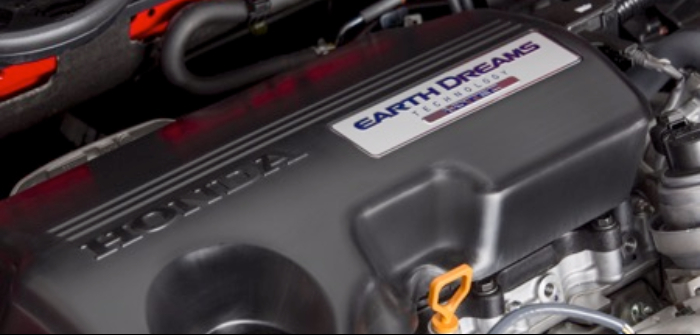Honda is set to add an upgraded 1.6 i-DTEC engine to its Civic line-up from March 2018.
Thanks to significant engine innovations and upgrades Honda claims the 1.6 i-DTEC offers efficiency without compromising on performance.
The revised i-DTEC promises to achieve fuel economy of 3.70l/100km and CO2 emissions of 99g/km. The 1.6 engine will also produce 120ps at 4,000rpm and 300Nm of torque at 2,000rpm, powering the Civic to 100km/h in 10.4 seconds.
Upgrades to the unit include pistons made from highly durable chromium-molybdenum steel alloy, as well as ‘super plateau honing’ of the bores to enable smoother movement and reduced cylinder friction.
Like its predecessor, the 1,597cc engine uses the same advanced Bosch fuel injection system and features a small high-efficiency turbocharger, low-pressure EGR and a high-intake flow with high-swirl cylinder head port.
Honda has also been able to minimize engine weight, with a new high-strength slender crankshaft and all-aluminum, open-deck, high-pressure, die-cast block.
In an attempt to reduce noise, vibration and harshness Honda has added cast ribs to the cylinder block increasing structural rigidity.
In a landmark development, the new power unit is one of the first to be officially tested under the new Worldwide Harmonized Light Vehicle Test Procedure (WLTP) fuel consumption and emissions cycle.
The 1.6 i-DTEC is also one of the first to be officially tested through the Real Driving Emission (RDE) procedure.
This means that Honda has added a new NOx storage converter with larger catalysts and a higher content of noble metals to store nitrogen gas until the regeneration cycle.
To ensure exhaust component durability a soot sensor has been added to accurately detect when the regeneration cycle is required.
A 9-speed automatic gearbox further bolsters the Civic powertrain options, and is applied to a two-wheel drive car for the first time.
Honda’s newest innovation in diesel engines will be available in both the four and five-door Civic from 2018.


